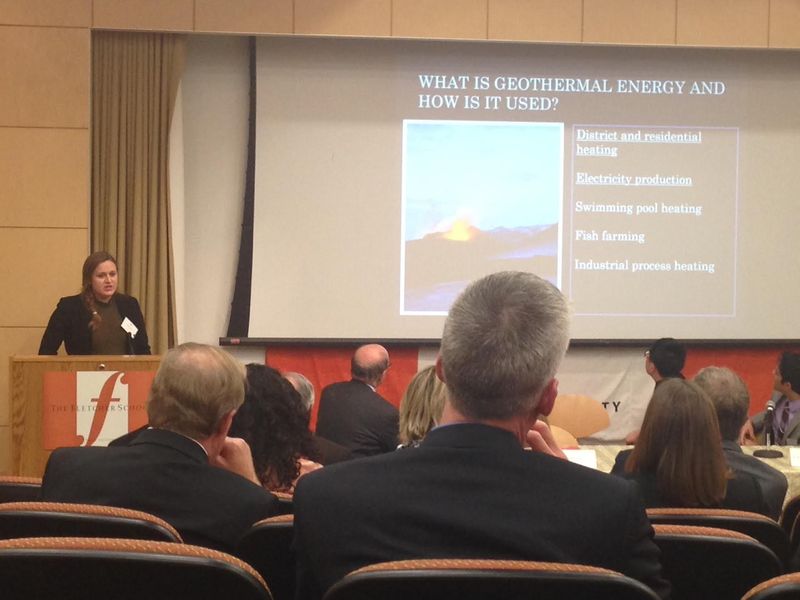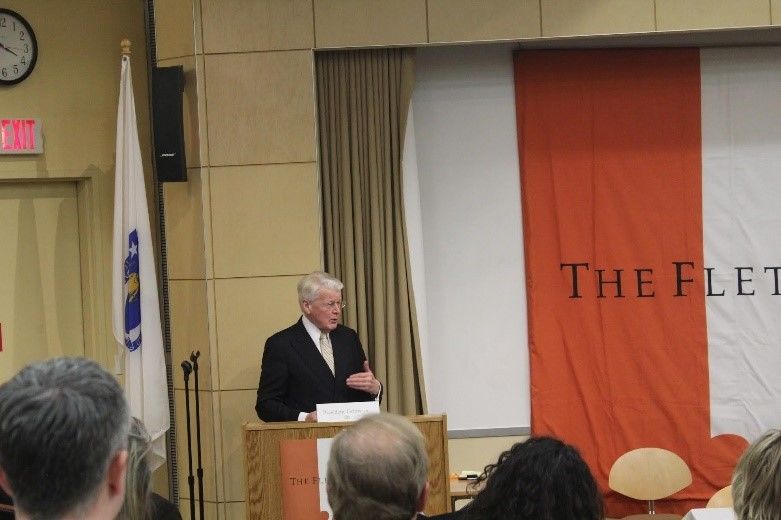Student presents work on geothermal potential in the Arctic in the Rising Stars Panel with Tufts and Harvard
Student Presents Work on Geothermal Potential in the Arctic in the Rising Stars Panel with Tufts and Harvard
The Warming of the Arctic Conference was held April 13-14 at Tufts University in Medford, Massachusetts, USA. The 4th annual event brought together professionals from the Arctic Council countries, as well as students from the Iceland School of Energy, Harvard Kennedy School, and Fletcher School of Law and Diplomacy at Tufts University.

Sarah Sternbergh: “I want to include more consideration for [Arctic] policy in my future work and studies”.
Sarah's presentation looked at some of the reasons utilizing geothermal energy would be beneficial in the Arctic, as well as technical, economical, and policy barriers to development. She further explains that “geothermal represents a significant alternative energy resource in the arctic that could both allow for more sustainable development and allow for cost reduction for heating and electricity in this region”. The most important message Sarah wants others to take away is that “policy and funding issues need to be addressed to support the development of this key resource”.
Several speakers discussed Arctic issues and concerns in order to inform others about potential aspects to further examine. During Sarah's time at the conference, one of the most interesting presentations she attended was from Dr. Fiamma Straneo, who talked about the speed of glacial flow not being accounted for in the Greenland ice sheet melting models, unlike surface melt. She adds that “the fact that this dynamic is not yet accounted for is fascinating and frightening…seaboard cities should be paying attention”. In addition, Sarah learned about different perspectives on the Arctic, including “the fact of continued military presence and testing in the arctic, [which] didn't surprise me, [but rather] how many people were surprised [by this fact]”.
Sarah reflects on her time spent at the conference as a positive experience; which will influence developing connections that will carry on into her future endeavours. One of her favourite moments included meeting President Olafur Grimsson, who stated in his keynote address about the importance of having scientists active in arctic politics. She adds, “I want to include more consideration for [Arctic] policy in my future work and studies”, based upon the strong influence of policy makers present at the conference. In addition, president of Reykjavik University, Ari Kristinn Jónsson, sign an official partnership with The Fletcher School of Law and Diplomacy. According to Halla Hrund Logadóttir, director of Iceland School of Energy, the primary goal of the agreement is to create opportunities for students to participate in projects and research.
 President Olafur Grimsson:Delivering keynote address at the Warming of the Arctic Conference
President Olafur Grimsson:Delivering keynote address at the Warming of the Arctic Conference
Overall, the conference provided a means for lessons to be learned to have an impact on Sarah's perspective of the renewable energy industry in the Arctic. She sums up the experience by stating, “As an engineer, I tend to think in technical terms and details. I wouldn't say I don't see the big picture, but I definitely tend to assume that solutions that are obvious and practical to me – the best science – are not at all what other people see”. As one of the Rising Stars in Arctic studies, Sarah hopes to continue research in this field during her thesis work to come next semester.
For more information about the Warming of the Arctic Conference, check out our Facebook page and our live Twitter feed from the event, featuring key personnel throughout the duration of the event.

